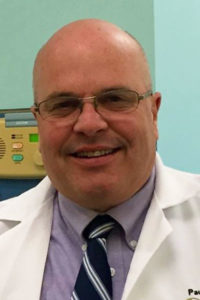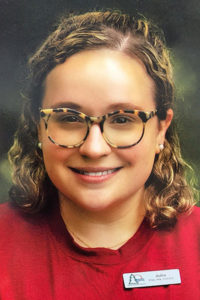
Diabetes care and education for children, teens, and young adults has evolved dramatically in the last few decades, according to Paul McGuigan, RN, CDCES, Study Coordinator at Case Western Reserve University, University Hospitals Cleveland Medical Center, Rainbow Babies and Children’s Hospital.
“Before the 1990s, we didn’t really recognize that type 2 existed in children and adolescents. Any child diagnosed with diabetes fell into one bucket: type 1 diabetes,” McGuigan recalled. “Insulin—the only treatment option at the time and dosed using a unit-per-kilogram algorithm—was exceeding typical dosing limits for pediatrics in these children who were overweight or obese. It was confusing and most of the time didn’t work very well. It wasn’t until the TODAY Study that we started to get a handle on type 2 diabetes in younger people.”
Things have changed dramatically since then, although more needs to be done. McGuigan and three other experts in diabetes care and education will present Individualizing Diabetes Care and Education for Children, Teens, and Young Adults with Diabetes at 2:15 p.m. CT on Monday, June 6, in La Nouvelle Orleans Ballroom B. They will discuss the practicalities of automated insulin systems, pumps, and continuous glucose monitors in schools; educating teens and parents for a successful transition to college and life outside the childhood home; and new strategies to help young adults gain health insurance literacy.

Education is a critical gateway to successful diabetes management for children, teens, and young adults, McGuigan said. Simply helping young people understand the problems that result from drinking sweetened beverages can make an important difference in their health, he said.
“Just getting them off sugar-sweetened soda and sports drinks can result in dramatic weight loss in just a few weeks,” he said. “They respond to all the ads about sports drinks to replace electrolytes, not realizing that the sugar intake can do terrible things to their bodies. But you can’t just tell kids to stop. It works best if you can help them figure out the connection on their own with targeted education.”
Julia E. Blanchette, PhD, RN, BC-ADM, CDCES, will discuss the financial aspects of diabetes care and education.
“My own experiences as a young adult living with type 1 diabetes and not understanding health insurance or how costs really worked [are what] led me to research, with hopes to someday provide solutions to the problem. Knowing that financial stresses impact diabetes outcomes, what can we do about it?” asked Dr. Blanchette, nurse scientist and diabetes care and education specialist, University Hospitals Cleveland Medical Center, and Clinical Assistant Professor of Medicine, Case Western Reserve University.
Dr. Blanchette developed and tested a novel, peer-led financial literacy program for young adults with type 1 diabetes. Understanding how health insurance and personal finance works can transform glycemic outcomes, as well as quality-of-life, she said.
“We know that diabetes is expensive, but we don’t always know what we can do about it,” Dr. Blanchette said. “This is an exciting new resource that you, as a clinician, can add to your toolkit to provide practical financial education in ways that are tailored to the needs of young adults and their real-life experiences. This is the kind of education that can change peoples’ lives.”
[sub-post-content]